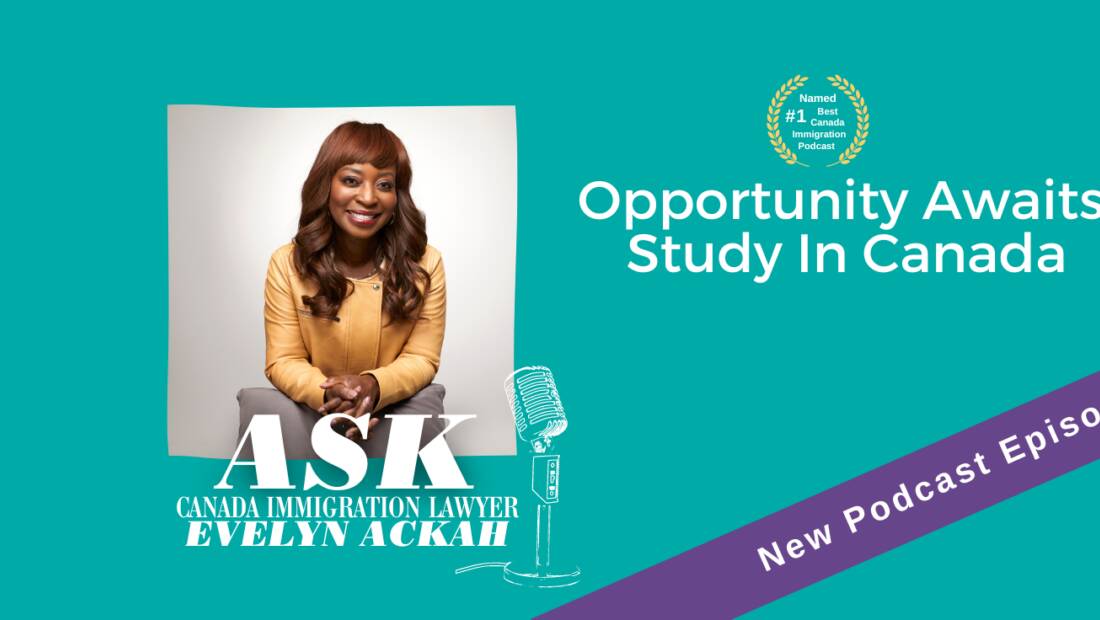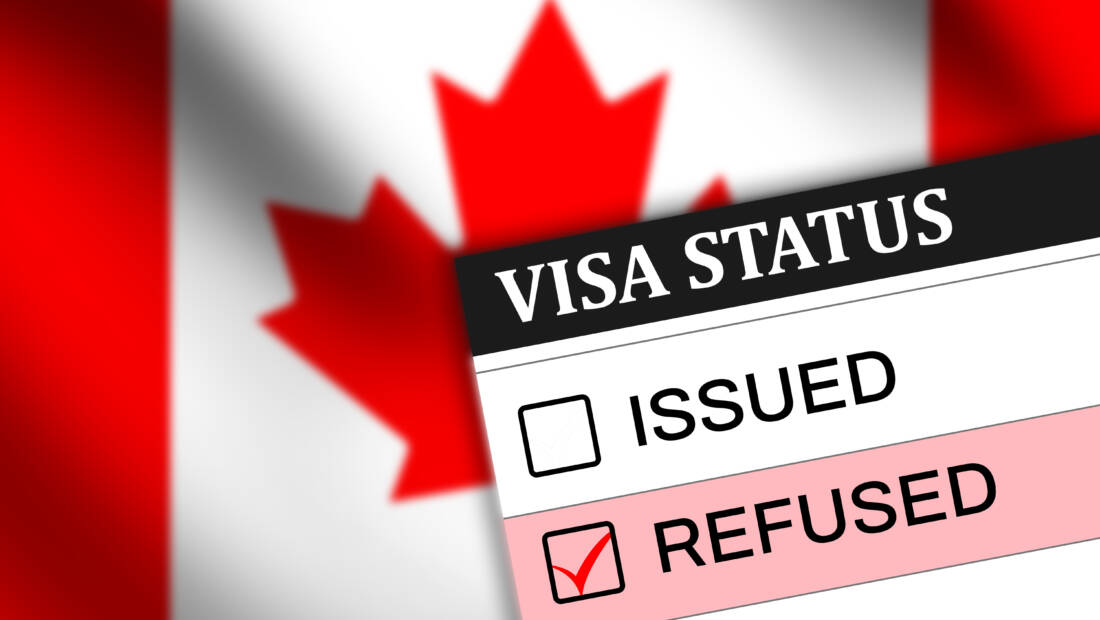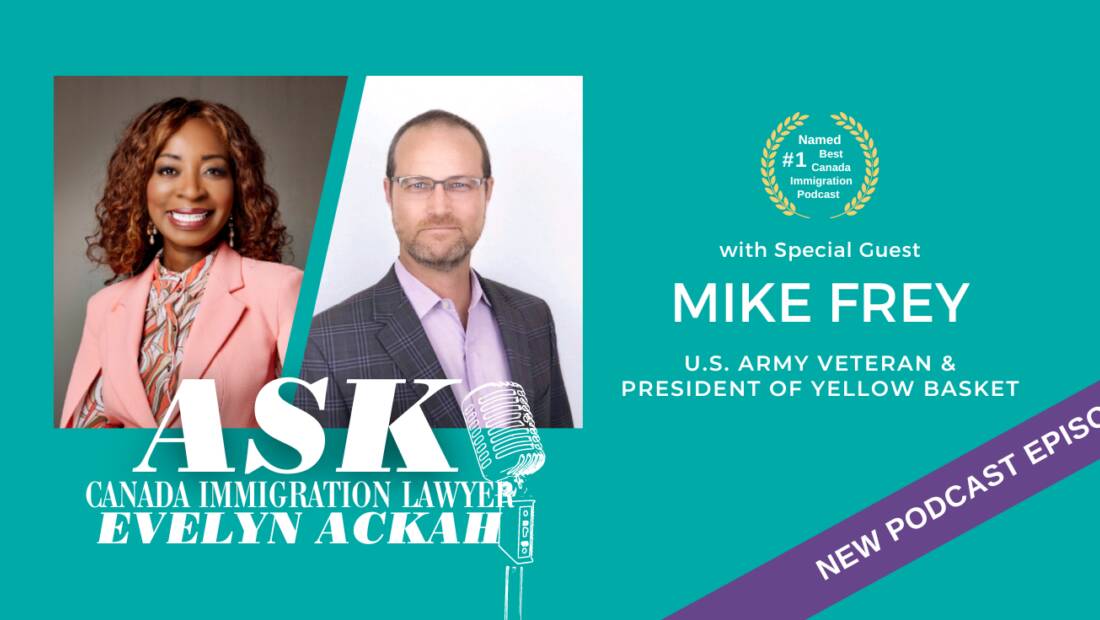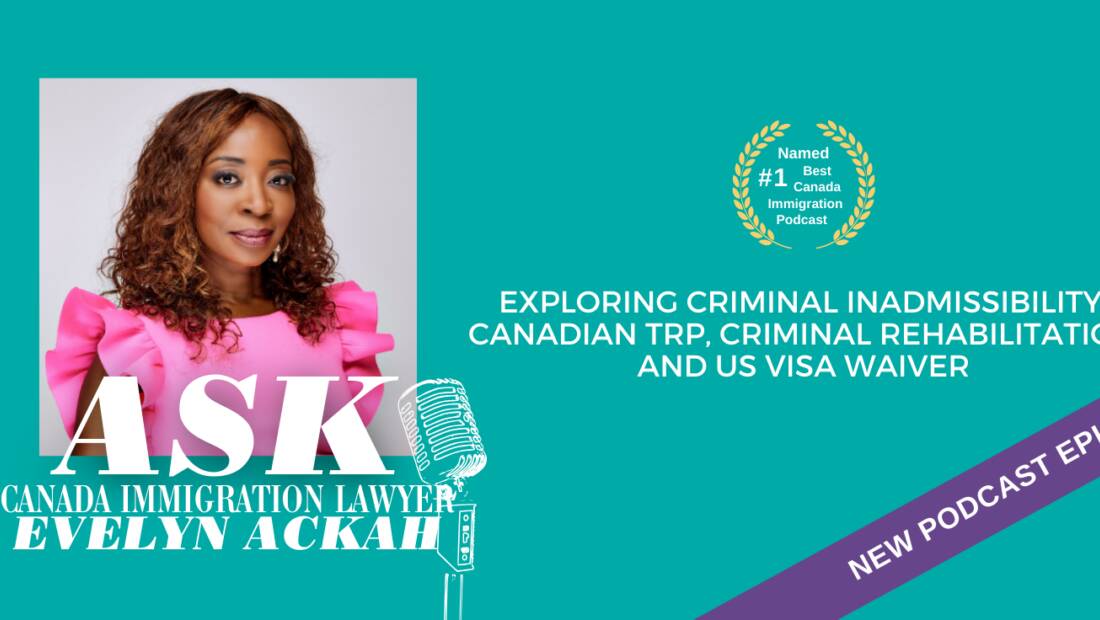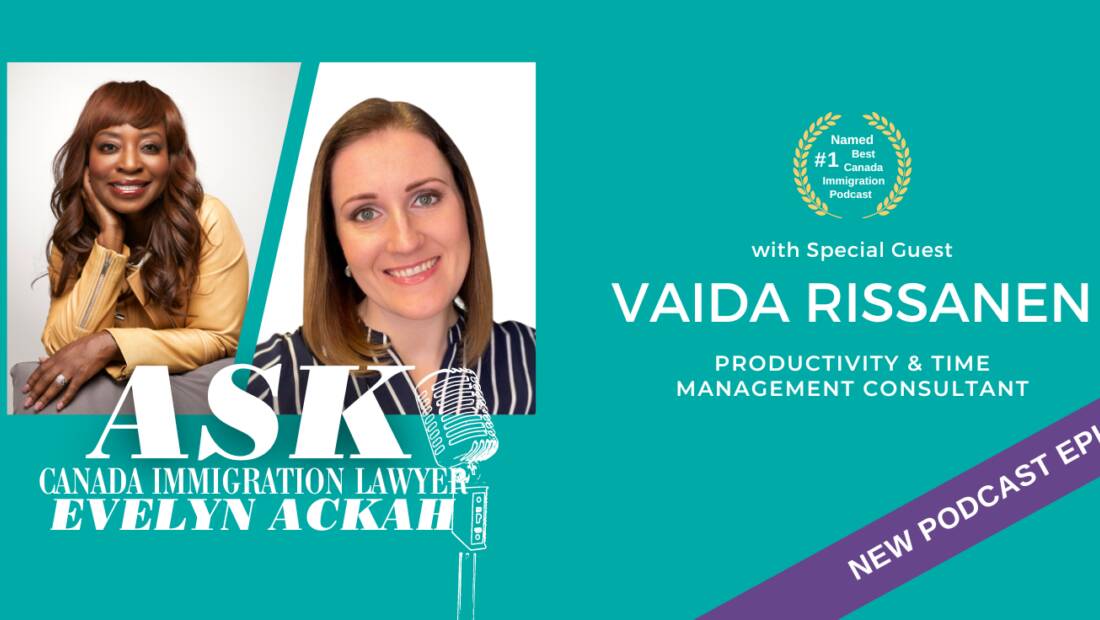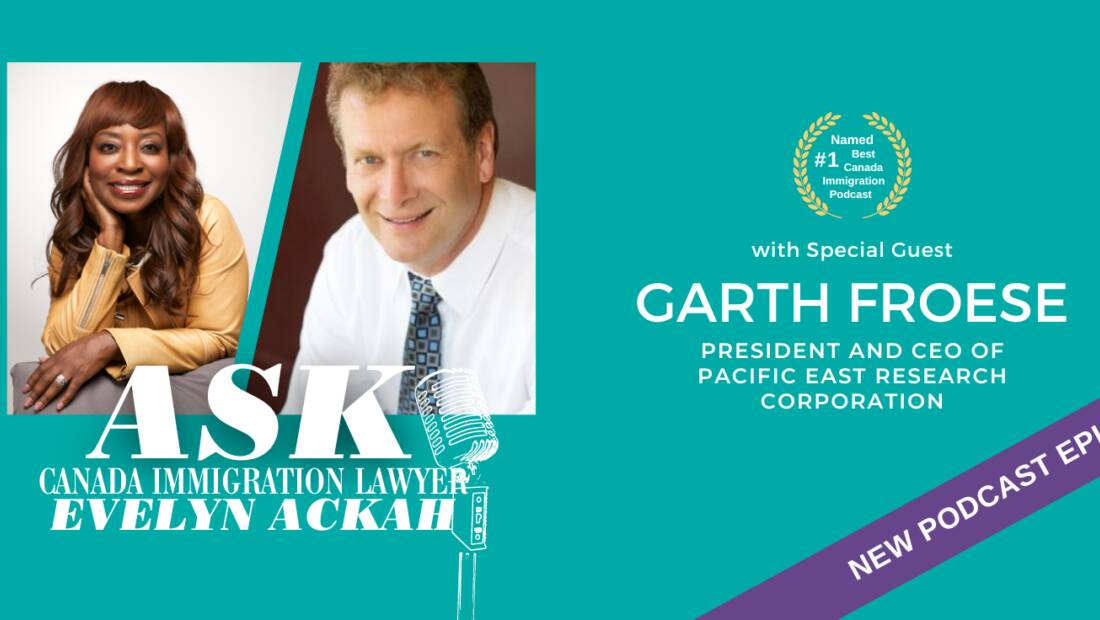Or listen on your favourite podcast app
On the Ask Canada Immigration Lawyer Evelyn Ackah podcast, Calgary immigration lawyer Evelyn Ackah discusses how to get a Canada study permit. Canada is a popular destination for international students, and for good reason. The country offers a high-quality education system, a safe and welcoming environment and many opportunities for work and further study after graduation.
If you are considering studying in Canada, you will need to apply for a study permit. A study permit is a document that allows you to study in Canada legally. To be eligible for a study permit, you must be accepted to a designated learning institution (DLI) and be able to show that you can afford to pay for your tuition and living expenses. You must also not be inadmissible to Canada, meaning you must not have a criminal record or any medical conditions that would prevent you from entering the country.
BOOK YOUR FREE CASE EVALUATION
On the podcast, Evelyn Ackah covers:
- To be eligible for a study permit, you must be accepted to a designated learning institution (DLI) and be able to show that you can afford to pay for your tuition and living expenses.
- You must also not be inadmissible to Canada, meaning you must not have a criminal record or any medical conditions that would prevent you from entering the country.
- Once you are accepted to a DLI, you can apply for a study permit through an immigration lawyer or on your own. The processing time for a study permit can vary depending on your country of origin, but it typically takes between one and four months.
- If your study permit is approved, you will be able to work full-time in Canada while you are studying. You will also be eligible to apply for a post-graduate work permit after you graduate, which will allow you to stay in Canada and work for up to three years.
- There is no age limit for study permits, so you can come to Canada to study at any age. This is a great way to start your immigration journey to Canada, as you can then apply for permanent residence after you graduate.
Key points:
- You must be accepted to a DLI to be eligible for a study permit.
- You must be able to show that you can afford to pay for your tuition and living expenses.
- You must not be inadmissible to Canada.
- You can work full-time in Canada while you are studying.
- You can apply for a post-graduate work permit after you graduate.
- There is no age limit for study permits.

About Evelyn Ackah
Evelyn Ackah is the Founder and Managing Lawyer at Ackah Business Immigration Law. With offices in Calgary, Toronto and Vancouver, we work with individuals and business owners from all over the world who want to cross borders seamlessly. For more information on immigration to Canada or the United States, Ask Evelyn Ackah at Ackah Business Immigration Law today at (403) 452‑9515 or email Evelyn directly at contact@ackahlaw.com.
The Ask Canada Immigration Lawyer Evelyn Ackah podcast by Calgary Immigration Lawyer Evelyn Ackah was named #1 Best Canada Immigration Podcast in 2022 by Feedspot.
BOOK YOUR FREE CASE EVALUATION
Transcript
Evelyn Ackah:
Hello everyone. It's Evelyn Ackah from the Ask Canada Immigration Lawyer Podcast, as well as LinkedIn Live Today. I'm really excited to talk to you today about study permits and how to get to Canada as a student. Today we're going to talk about this program for getting a study permit and what it entails for you to be successful. The first thing is, if you're interested in studying in Canada, you need to be accepted to a program, and we always recommend making sure it's a designated learning institution so that you have the best options for down the line to be able to move to permanent residence or by way of post-graduate work permit. You want to make sure it's an academic program at least 12 months. We always say 18 to 24 months is ideal if you're not doing a full degree, and you must be accepted before we can assist you with any of the immigration.
The way it normally works is that you must be approved and you must be able to show, sorry, approved to get into the school, you must be able to show that you can afford to go to school. The main criteria the immigration focuses on is affordability, being able to show you have money in the bank to be able to pay for your tuition as well as your living expenses. If it's you and a family, you're going to need more revenue or more income in your bank account so you can show you can support yourself. Right now, full-time students are also able to work full-time, and this is a pilot. We hope it stays on all the time so that you can do what you need to do, but that is the normal process. Then you also have to show that you have not been considered inadmissible, so there's no criminality, there's no medical issues that would make you inadmissible to Canada.
Once you get accepted to the school, that's when we can come in to help you with the immigration process. We would prepare your study permit application for you, and then if you have accompanying family members, then everything will be able to be processed by us and we can assist you to get the study permit. Depending on where you're coming from, it could be anywhere from a month to four months to be processed, so you need to be having a plan in place in order to understand when school starts and if you're going to have enough time to get into the program when you want. Occasionally, our clients have to defer tuition, defer start, because they need more time to get their study permits processed. What's great about the Canadian study permit is that now you can work full-time while you're going to school to further help support yourself and meet our labor needs, as well as once you choose a designated learning institution and you finish school, you get a post-graduate work permit.
Make sure as well that the program that you choose has the post-graduate work permit indication on it attached to it. You can check this with contacting the foreign student office as well as making sure you check the DLI listing on the IRCC website. Once you know your program has a postgraduate work permit option, you'll be able to get a work permit after school and work in your field of study so that you can then apply for permanent residence under either the Provincial Nominee Program or the Canadian Experience Class after you've worked for 12 months. Every province has a little bit of variation with their Provincial Nominee Programs, but this is generally the rule. Some provinces allow you to start applying for PR within six months of working after graduation in your chosen field of study.
What I love about the study permit is there really is no age restriction. We have helped people come in their sixties to go to school here. A lot of times people are interested to study because they also want to obtain permanent residence and they may not have any other options except for coming as a student, having a spouse that works full-time, and then applying for permanent residence, let's say under the Provincial Nominee Program. That is one way to get to Canada. If you are too old, or you may not have enough education, or you don't have an employer, you can come as a student so long as you can get into school and show that you can afford your school and your living expenses. It's a great way to come to Canada and start your immigration journey from Canada.
If you have any questions at all about the study permit process, do give us a call at Ackah Business Immigration Law at the number below. We would love to help you plan your academic career in Canada and make sure you know all the steps that must be met. For instance, you must complete your program in order to get a post-graduate work permit. If you'd like to learn more, please give us a call at Ackah Law. Thanks so much and have a great day, and please, please do sign up to receive our podcast and give us a five star rating and share our podcast with your friends as well as our LinkedIn that we do every week, our LinkedIn Live. Thanks. Bye-bye.

